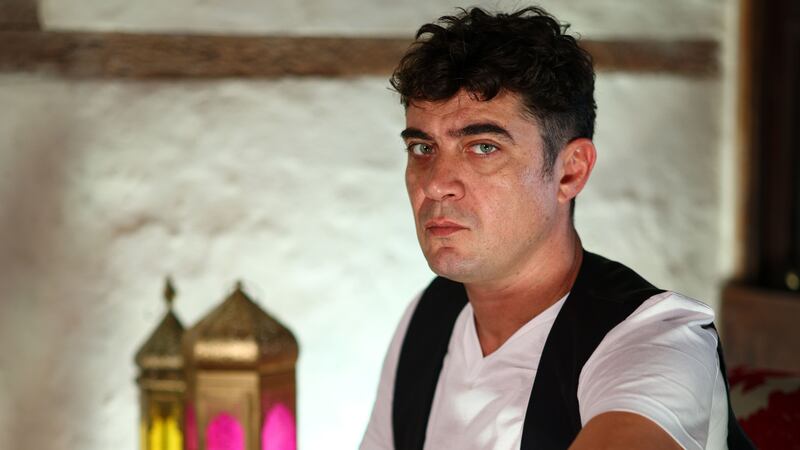We knew Christy Dignam as a phenomenal talent and a man who fought fiercely to enjoy life as much as possible for as long as possible. He died six months ago and this year marks the 30th anniversary of the words inspired by the birth of his daughter. The lyrics of Crazy World have never rung more true, given that in November 2023 Dignam’s native Dublin hosted scenes that we do not typically associate with Ireland, and those scenes force us to address important questions about who we are and what we have become.
Today the world is even crazier, despite all the progress, which should mean we are more skilled and better equipped than ever. It seems that the madness beyond our control is evolving at a rate that far exceeds the pace of the corresponding advances. If that is true, and goes on to remain true, what chance do we have? And what chance have parents when they must face the question of how to protect their children in a crazy world?
From an early age young people navigate their own world from the moment they head off to school and spend whole days unaccompanied by their parental shield. Child protection is everyone’s business, including the child’s. And everyone involved needs a combination of knowledge and skills.
Thirty-five per cent tried alcohol aged 13 or younger and that 12 per cent get their alcohol from a family member. Some 25 per cent admit to binge drinking
Education may not have the answer, but it informs our evolving response to an ever-changing situation. A conscious effort to seek out relevant information and to learn better equips us to respond to whatever we encounter in the world. And the less predictable the things we encounter are, the more prepared we need to be. News media is a rich resource, as is engaging with others on a conscious level. Being open to how others experience the world is crucial if we are to anticipate how they may react in the future. That alone is invaluable when it comes to parents observing their children and assessing how much freedom to award them, for example.
READ MORE
As far back as 2010 a World Health Organisation survey found that Ireland had the highest rate of killings of young men overall in western Europe, while a separate study suggested that students aged 12-16 in Irish schools were more likely to have brought a weapon to school compared with 10 European countries. Given the increase in phone access and screen time since then, and the accompanying increase in unhelpful behaviours, don’t we need more up-to-date evidence on how this figure has evolved? Where is the evidence that we are asking the right questions so that we know exactly what is being brought into Irish schools these days? Without asking, we cannot know. And we need to.
Planet Youth surveys mean that we have indicators for many other areas, most helpfully for those that it may be harder for adults to access through open dialogue. In October and November 2021 more than 2,500 young people participated in the inaugural North Dublin Planet Youth survey. The resulting data assures us that the prevalence of substance use among 14-16-year-olds in north Dublin is in line with the results of other national and European surveys on substance use. “In line with” doesn’t mean good news, however, as we learn that 35 per cent tried alcohol aged 13 or younger and that 12 per cent get their alcohol from a family member. Some 25 per cent admit to binge drinking.
Views will differ on whether those statistics are alarming or not; my point here is different. The consumption of these substances directly affects the decisions we make, and the decisions young people make have a knock-on effect on their peer groups. We must be aware of what our children are exposed to, and especially of what they will not necessarily be telling us about. The emotional impact of what young people experience seeps out in their daily functioning – or lack of it. And it is there we perhaps see links with them feeling distracted, being inattentive in class, underperforming academically and so on.
Some 56 per cent admit to lifetime thoughts of self-harm and 42 per cent to self-harm behaviour. What proportion of parents know about this?
We cannot possibly protect young people from what we do not know about. Given that school is where they spend their days and that school staff act in loco parentis, we play a vital role in posing important questions. Again, Planet Youth surveys offer clear signposts. If 71 per cent of students feel safe at school, what are the 29 per cent afraid of? If most students feel it is safe to be around the adults in their school, what are the others observing? Their perceived lack of safety merits probing questions.
Some 60 per cent of young people wish they had more respect for themselves. What thinking and behaviours result from not having a stronger positive sense of self? Some 56 per cent admit to lifetime thoughts of self-harm and 42 per cent to self-harm behaviour. What proportion of parents know about this? Accessing these statistics at least heightens our awareness of the high incidence, and we can increase our powers of observation and, if necessary, investigation.
Knowledge is power, and education serves as a powerful ally in seeking ways to protect our children and young people in an increasingly crazy world. But in order to be effective the quest for knowledge must start with what is relevant and close to home. Ultimately it is about knowing which questions to ask, just as Christy Dignam did all those years ago.
Follow The Irish Times education section on Facebook and X (Twitter) and stay up to date

















